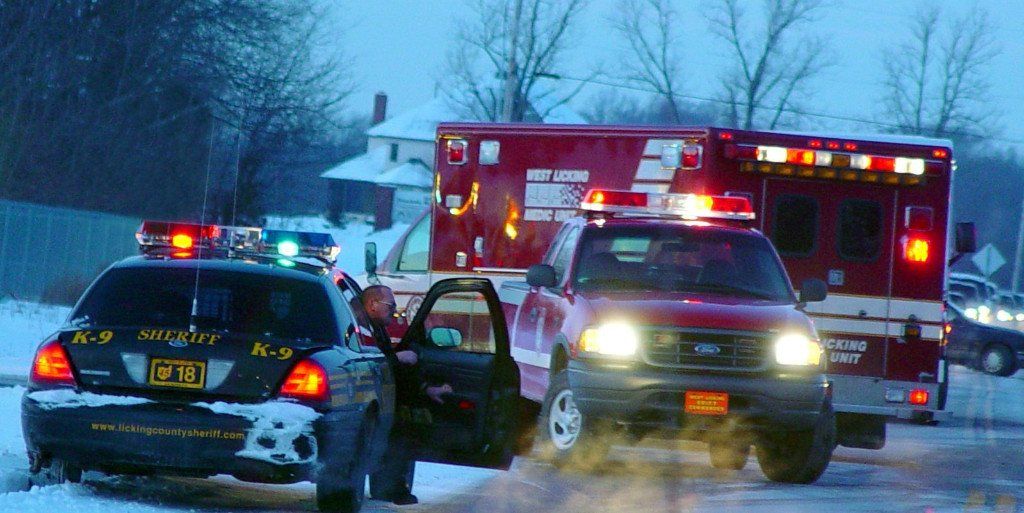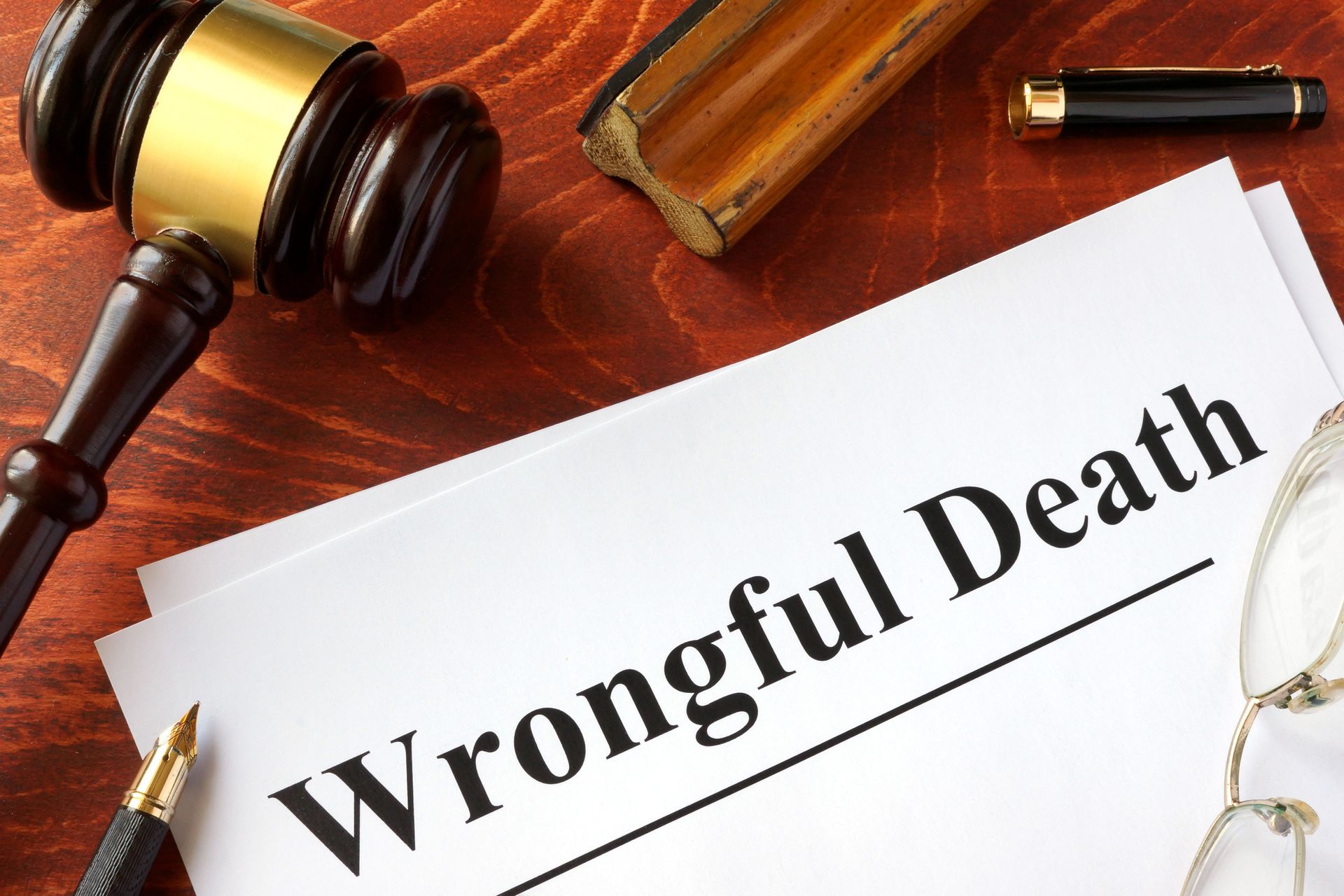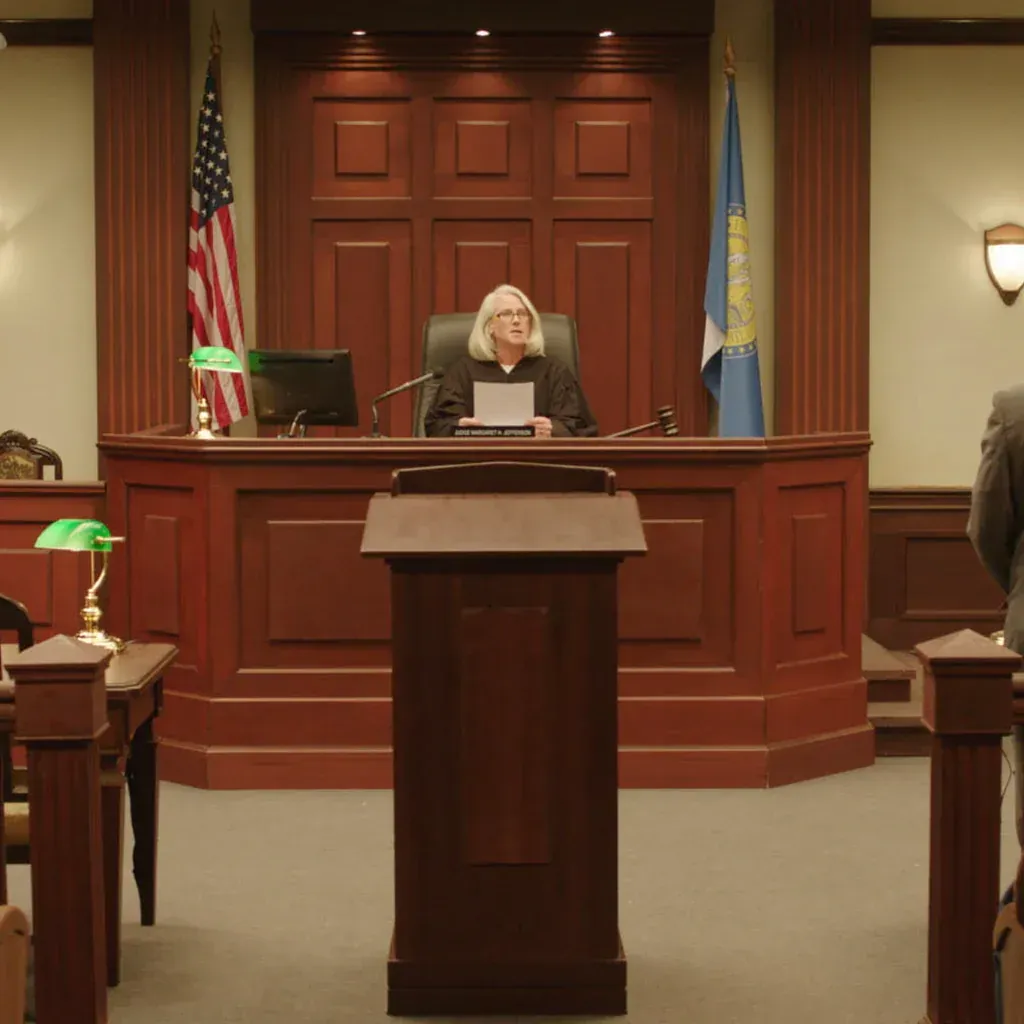Frequently asked Chapter 7 bankruptcy questions.
Frequently asked Chapter 7 bankruptcy questions.
1. How many hearings will there be in my case?
- There is usually only one hearing in your case, but the Judge can schedule as many hearings as he feels are necessary to correctly process your case. You need to always bring with you to any hearing a photo ID so that the security guards will allow you to enter the Federal Courthouse Building. You need to bring with you to your Meeting of Creditors, which is usually, but not always, the first and only hearing in your case the following items: (1) photo ID, (2) proof of your Social Security Number, (3) all of your pay stubs for both you and your spouse covering the period from the date you filed your bankruptcy case up to the very latest pay stub you received prior to your Meeting of Creditors hearing, and (4) your most recent bank statement you received prior to the date of your hearing. It is extremely important that you have proof of your Social Security Number. Check your proof of Social Security Number very carefully because the proof must contain your entire Social Security Number. Many documents now only have the last four digits of your Social Security Number, or do not have your Social Security Number on it at all. Your proof of Social Security Number cannot be a document that you prepared and put your Social Security Number on yourself.
2. No creditors showed up at my Meeting of Creditors hearing, can they still object to my Bankruptcy case?
- Yes, creditors can still challenge your bankruptcy case even if they did not show up at your Meeting of Creditors hearing.
3. How long after my Meeting of Creditors hearing will it take to get my Discharge Order?
- It usually takes about 90 days after your Meeting of Creditors hearing to get your Discharge Order, but sometimes it takes longer than 90 days. Stapleton Law Offices does not have control over when the Judge signs your Discharge Order
4. What are all of the problems that could come up in my bankruptcy case?
- It is impossible to predict the future so there is no way to make a list of every problem that could come up. The only thing that can be done is to “cross that bridge when we come to it” and deal with any problems in the future as they arise.
5. Can I consider Stapleton Law Offices my family lawyers and can I recommend my friends and relatives to Stapleton Law Offices?
- Absolutely, we would be honored for you to consider us your family lawyers. We do not represent banks, insurance companies and large corporations. We represent families, working people and consumers just like yourselves so please consider us your “family lawyers” just the same as your family doctor. We would also be doubly honored if you would recommend us to anyone you know who might have been injured in an automobile accident or injured in any other way. We handle injury cases in all 50 states. We also handle family law matters such as divorce, custody, visitation, grandparent rights, etc. Obviously we handle bankruptcy, financial reorganization, foreclosure, etc. cases. We also handle social security disability cases. We strongly believe that word of mouth from people like yourself is far better than any lawyer television commercial so we would be highly honored if you would recommend us to your friends, relatives, and neighbors.
6. How long after I file my bankruptcy case do I have to wait to apply for credit or a loan?
- You can apply for credit or a loan the day after your bankruptcy case is filed if you like. Please remember that a creditor is not required by law to grant you credit but you are free to apply for credit right away, you do not have to wait until your bankruptcy is finished to apply for credit. Also, remember that the date of your bankruptcy case was filed is the date that the papers were actually filed at the Courthouse. This is not the date that you came in our office and it is not the date of your hearing. You can call (304) 347-5680 to obtain the date your bankruptcy case was filed and your bankruptcy case number if you are not sure of these. Although you are free to apply for credit anywhere you like, our office does have the names of a few automobile dealers who might be willing to sell you an automobile shortly after your bankruptcy case was filed, even if your bankruptcy case has not been discharged yet. Of course, we do not receive any sort of commission or fee from the auto dealers we recommend, we do this only to help our clients and not to obtain any fee or commission for ourselves.
7. Can there be additional attorney’s fees and additional court costs?
- Yes, we charge according to how much time we spend on your case, so there could be extra attorney’s fees on your case depending on how much time we are required to spend on your case. There are usually no additional attorney’s fees and court costs but, again, that will depend upon how much time we are required to spend on your case.
8. Am I required to take any classes regarding my bankruptcy?
- Yes, you are required to take two classes. The first is called the “Credit Counseling” class and you are required to take the class before you are allowed to file bankruptcy. The second is called the “Debtor Education” class and you are required to take this class after your bankruptcy case is filed but no later than 45 days after the first date scheduled for your Meeting of Creditors hearing. Your Debtor Education class is also sometimes called the “Financial Management” class. After you complete your Debtor Education class, you need to make sure that the Certificate showing that you completed your Debtor Education class gets filed at the Bankruptcy Clerk’s Office. If you take your second class (your Debtor Education class) through The Credit Education Foundation (toll free telephone number 1-866-726-9909) the Credit Education Foundation personnel will automatically forward your Debtor Education Certificate to the Bankruptcy Clerk’s Office for you so this is an excellent choice to use for your Debtor Education class. You can take your class through this agency by internet, telephone, or in person, whichever is most convenient for you. This agency also only charges $20.00 per debtor if you take the class online, $30.00 per debtor if you take the class by telephone, or $15.00 per person if both debtors take the course on the telephone on the same telephone call, and this is the cheapest price we know of. The blue form which you have previously received from our office (call our office and ask for a blue form if you have not previously received a blue form) describes the Credit Education Foundation, which is located in Ironton, Ohio, in more detail. Stapleton Law Offices does not receive any sort of commission or payment if you use the Credit Education Foundation, we simply recommend them because we have found that they are the best for our clients. If you call the Credit Education Foundation and get their voice mail/answering machine make sure that you leave your name and telephone number and someone will call you back soon. Many clients have said to me that they have called the Credit Education Foundation many, many times and the Credit Education Foundation never calls back. That is usually because the client did not leave a voice mail with their telephone number on it for the Credit Education Foundation to call them back! Soon after you file bankruptcy, you will probably receive several postcards in the mail from other debtor education companies asking you to use them. They obtain your bankruptcy information from the Bankruptcy Court and send these postcards to everyone who has file Bankruptcy. I have had no experience with any of these places, so I recommend that you do not use them. Also completing the debtor education class takes time and debtor education companies can get behind so make sure that you do not wait until the last minute to attempt to take your debtor education course because waiting until the last minute could cause your bankruptcy case to get dismissed and you have no bankruptcy protections. You can take your debtor education class before your Meeting of Creditors hearing if you like, but you are not required to have your debtor education class completed before your Meeting of Creditors hearing. I recommend that you begin your debtor education class no later than 15 days after your Meeting of Creditors hearing.
9. What should I do if one of the creditors I listed on my bankruptcy papers keeps sending me bills?
- If you are sure you listed the creditor on your bankruptcy papers, you can simply write on the bill: “I filed bankruptcy in the Bankruptcy Court for the Southern District of West Virginia. My Case Number is . Please do not contact me any further.” and mail it back to the creditor. If you are not sure that you listed the creditor on your bankruptcy papers, you should bring the document to our office for us to see if you listed the creditor on your bankruptcy papers.
10. What should I do if I want to continue to keep my home, or my vehicle, or some other belonging of mine that stands as collateral on my debts?
- You should make sure that you keep making the payments on this debt. Remember that often the creditor might stop automatic payments on the debt after you file bankruptcy if you had an automatic payment arrangement from your paycheck or from your bank account on the debt. Also, after bankruptcy is filed, creditors sometimes stop sending you monthly statements or invoices. It is still your responsibility, if you want to keep the collateral, to make sure that the creditor receives the payments. Also, remember if it is your home or a vehicle that you are keeping, you are still required to keep full coverage insurance on the collateral, with the creditor listed as the beneficiary (also sometimes called the loss payee) of the insurance. The “bottom line” is that it is your responsibility to make sure that the creditor receives the payments and that it is not an excuse to say that the creditor stopped taking the payment out of my account or that the creditor stopped sending me statements, or any other excuse. You must simply make sure that the creditor receives its payment. No matter what you have to do make sure that the creditor receives its payment
A reaffirmation agreement is a document that legally reobligates you to pay a debt rather than the debt being bankrupted. If you are sure that you want to keep a belonging of yours that stands as collateral, you need to make sure that you have signed a reaffirmation agreement on that debt within 30 days of the date your bankruptcy case is filed. Creditors sometimes require you to be completely current on your payments on the debt before the creditor will agree to enter in to a reaffirmation agreement with you. If you have not received a reaffirmation agreement on any collateralized debt you wish to keep within 30 days when your bankruptcy case is filed, you need to make an appointment to meet in our office in person with Scott Stapleton.
11. What if I purchased insurance on my loan which was supposed to pay my loan payments if I became temporarily disabled, if I became unemployed, etc, but the insurance company refused to pay the payments when I did become unemployed, disabled, etc?
- If this happened to you, you need to meet in person immediately with Scott Stapleton because if you purchased insurance and the insurance wrongfully refused to pay when they should have paid, we may be able to sue the insurance company for a large sum of money for you. We handle cases such as this on a “no risk basis”. This means that if we do not recover money for you, you would owe us nothing. So, if this happened to you, please make an appointment to meet in person with Scott Stapleton immediately.
12. Are there other types of Bankruptcy Financial Reorganization relief available if I have financial problems in the future after this bankruptcy case is finished?
- Yes, there are other types of bankruptcy/financial reorganization relief available. So, if you have financial problems in the future, make an appointment to meet with us in person to discuss your specific circumstances because some complicated limitations do apply.
13. Am I allowed to “not file bankruptcy” on some of my debts?
- You are required by law to swear or affirm under penalty of perjury that you have listed all of your debts on your bankruptcy papers. You are not allowed to intentionally leave any debts off of your bankruptcy papers because you “don’t want to bankrupt that debt.” However, even though you list a debt on your bankruptcy papers, you are still perfectly free to voluntarily pay that debt. Bankruptcy eliminates your obligation to pay a debt, but does not eliminate your right to voluntarily pay a debt, even a debt that was listed on your bankruptcy papers.
14. What if I called Stapleton Law Offices or sent Stapleton Law Offices an e-mail but did not hear back from them?
- We receive hundreds of phone calls and hundreds of e-mails every single day and it is sometimes impossible to respond to every one of them. We personally review every letter we receive and we personally review every fax we receive so it is better to send us a letter or a fax to communicate with us. Our fax number is (304) 529-0103. Also, you can, at any time you like, make an appointment to meet with us to discuss any matter in person with us. If it is an extremely important matter, send us a letter by certified mail to make sure that the letter does not get lost in the mail.
15. Am I required to appear at my Meeting of Creditors hearing?
- Yes, you are absolutely required to appear at the Meeting of Creditors hearing. (Both you and your spouse must appear if you both filed bankruptcy.) The Meeting of Creditors hearing usually only takes about two minutes. The Meeting of Creditors hearing is very easy as the questions you are asked are very simple, such as what is you name, what is your address, etc. Of course, Stapleton Law Offices will be with you at the hearing to fully represent you. We have over 30 years of experience, so we have done a tremendous amount of work “behind the scenes” to make sure that your Meeting of Creditors hearing goes as smoothly as possible. Your attendance at the Meeting of Creditors hearing is mandatory and if you do not attend the hearing, your bankruptcy case will be dismissed, your debts will not be bankrupted, and you will have no bankruptcy protections. The Court schedules the Meeting of Creditors hearing so we cannot control when it will be scheduled. We apologize if the date your Meeting of Creditors hearing presents an inconvenience or causes you to miss work, but this is and extremely important Federal Court hearing and you simply must appear.
16. What if, after my bankruptcy case is filed, I discover that I forgot to list a debt?
- Immediately bring to our office the name, address, and account number for the debt. We can amend your bankruptcy to add the debt. However, there are time deadlines, so bring this information to our office immediately, together with $76.00. The Court charges extra court costs to amend your bankruptcy to add a debt that you forgot, and Stapleton Law Offices charges a small fee for the extra work.
17. Should I check at the courthouse to see if there are any liens filed against me?
- Yes, this is very important. You need to go to the Courthouse for any county where you now own real estate or might own real estate in the future, and check to make sure that there are no judgment liens which would tie up your real estate. It is extremely important to understand that even though you listed a debt on your bankruptcy papers, if a judgment lien has been placed on your real estate, we must file a completely separate document called a Motion to Avoid Judgment Lien, or the judgement lien will stand against your real estate, even though you listed the creditor on your bankruptcy papers. If you do discover there is a judgment lien on your real estate, obtain a copy of the paper filed at the Courthouse and mail it to Stapleton Law Offices immediately, by certified mail. Stapleton Law Offices does not go to the county Courthouses and check for judgment liens, so this is completely your responsibility to check for judgment liens. Remember that a judgment lien will continue to tie up your real estate even though you listed the judgment lien creditor on your bankruptcy papers unless you send us a copy of the judgment lien by certified mail. If the real estate is located in West Virginia, you would go to the “record room” at the County Courthouse where the deeds are kept to see if there is a judgment lien. However other states have different systems.
18. What is a reaffirmation agreement, and do I need to file a reaffirmation agreement?
- A reaffirmation agreement is a document that legally reobligates you to pay a debt and you are not supposed to sign a reaffirmation agreement if making the payments on the reaffirmed debt would be an undue hardship on your or dependants. Because a reaffirmation agreement reobligates you to pay a debt which you otherwise could bankrupt, a reaffirmation agreement mostly helps the creditor, so creditors are always eager to have you sign a reaffirmation agreement so that you are “back on the hook” for the debt. Reaffirmation agreements mostly come into play on vehicle loans and mortgage loans. You are not required to sign a reaffirmation agreement regarding your mortgage and the mortgage holder cannot foreclose on your real estate on the grounds that you did not sign a reaffirmation agreement. However, your mortgage holder can foreclose on your real estate for other reasons, such as you are behind on the mortgager payments, you did not keep your required homeowner’s insurance and/or other insurance on the real estate, etc. For that matter, you are no required to sign a reaffirmation agreement for any debt. The situation is somewhat different regarding vehicles. If you do not sign a reaffirmation agreement regarding your vehicle, the creditor could repossess your vehicle on the grounds that you did not sign a reaffirmation agreement, even if you are current on your vehicle payments, and even if you have the “full coverage” insurance naming the car loan creditor as the beneficiary of the insurance. This “full coverage” insurance is often called comprehensive insurance coverage and collision insurance coverage. Car loan creditors do not always repossess a vehicle on which you are current on your payments on the grounds that you did not sign a reaffirmation agreement even though the creditor has a right to do so. Most of our clients prefer to continue making the car payments and not reaffirm the car loan debt so that if they later become ill or unemployed or divorced and cannot afford the car payments, they have the right to give the car back to the creditor and not have to make additional payments even if the creditor does not get enough money to fully cover the car loan balance when the creditor sells the vehicle. This is a very important benefit for you because when creditors repossess vehicles, they sell them very cheap and if you have reaffirmed the debt, you have to pay the deficiency balance, which is the difference between the price they sold it for and the amount that was still owed on the loan. If you do not sign a reaffirmation agreement, you are not required to pay the deficiency balance if you later decide to give the vehicle back to the creditor. This is also helpful if you start having problem with the vehicle in the future because you then have the right to give the vehicle back to the creditor and not owe anymore money on it.









